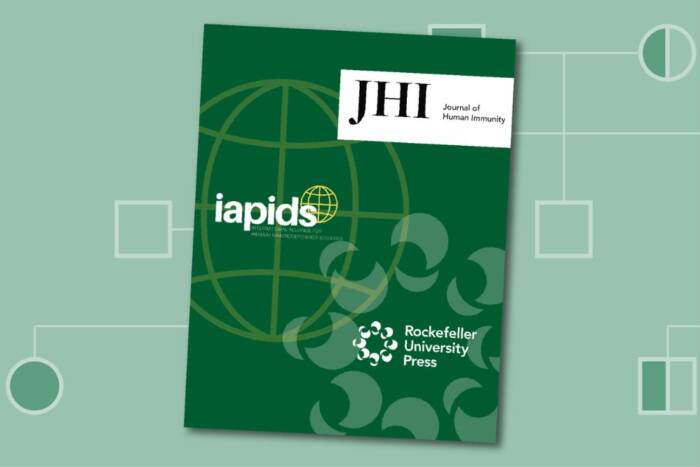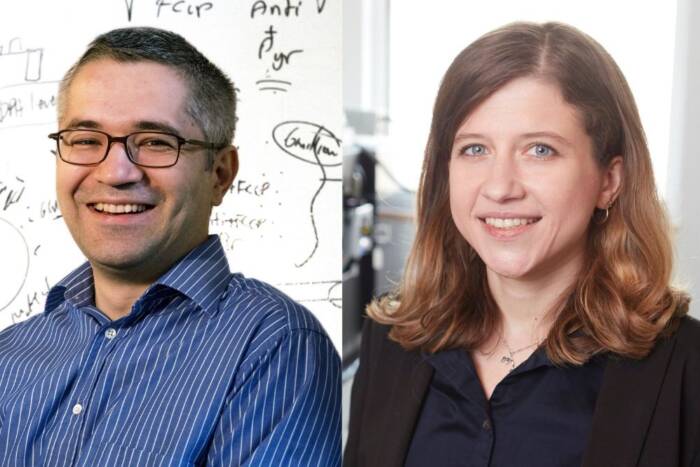Many people with severe brain injuries are far more cognitively aware than they seem

Scans of healthy study subjects (left) and one with cognitive motor dissociation (right) show blood flow to active brain regions; insets depict intervals of cognitive activity in blue and rest periods in gray. (Courtesy of Weill Cornell Medicine)
Patients with severe brain injury can show clear signs of cognitive function with surprising frequency, even when they can’t move or speak, according to an international study co-led by Weill Cornell Medicine (WCM) investigators that took place in part at Rockefeller University Hospital.
The study(opens in new window), recently published in the New England Journal of Medicine, is the largest-ever investigation of cognitive motor dissociation. Cognitive-motor dissociation is thought to be closer to the better-known “locked-in” state that isolates an intact brain, typically through either strokes or degeneration of only the motor neurons in amyotrophic lateral sclerosis. But it is also seen in patients with more extensive brain injuries who otherwise seem mostly or entirely unaware of their surroundings.
The researchers observed that of 241 patients in a coma or vegetative state who were asked to carry out complex mental work, 25% had sustained and relevant cognitive responses as shown on electroencephalography (EEG) readouts or functional magnetic resonance imaging (fMRI) scans. In short, they were far more aware than they outwardly seemed to be.
“We find that this kind of sharp dissociation of retained cognitive capabilities and no behavioral evidence of them is not uncommon,” says Nicholas Schiff, of the Feil Family Brain and Mind Research Institute at WCM. “I think we now have an ethical obligation to engage with these patients, to try to help them connect to the world.”
The patients were tested with consent from a surrogate at six academic medical centers, including Rockefeller University Hospital (RUH), which made extensive renovations to its facilities in order to develop a model clinical infrastructure for the study, which was led by Schiff and his WCM colleague Joseph Fins.
Barry Coller, physician-in-chief of RUH, led the upgrade effort. “When Dr. Schiff and Dr. Fins described the project to me, I realized the importance of bringing hope to these patients and their loved ones,” he says. “We are proud to be a part of this pioneering research, which has creatively harnessed all of the power of modern science.”
Game-changing discovery
In the United States alone, the number of people estimated to be in a chronic vegetative state ranges from 5,000 to 42,000, while those in a minimally conscious state are estimated to range from 112,000 to 280,000.
For the study, the researchers enrolled 353 adults with disorders of consciousness, the majority of which stemmed from severe traumatic brain injuries or interrupted oxygen supply to the brain following strokes or heart attacks. Most were under care at home or in long-term care facilities, and the median time from injury was about eight months.
The researchers asked each patient to perform a series of continuous motor tasks (e.g., “keep wiggling your toes”) as well as motor-related cognitive tasks (“keep imagining wiggling your toes”) for multiple bouts of 15 to 30 seconds, with equal periods of rest in between.
Of the 241 patients who were unable to demonstrate bedside command following, 25% were able to perform the cognitive tasks, as was evidenced by their EEG- and/or fMRI-measured brain activity, which matched the patterns seen in healthy subjects in response to the same commands.
Seeking easier detection
The findings suggest that many seemingly unconscious patients may be aware and capable of cognition.
“These results bring up critical ethical, clinical, and scientific questions,” says lead study author Yelena Bodien, an investigator for the Spaulding-Harvard Traumatic Brain Injury Model Systems and Massachusetts General Hospital’s Center for Neurotechnology and Neurorecovery. “How can we harness that unseen cognitive capacity to establish a system of communication and promote further recovery?”
The findings are likely to lead to several new lines of research. One is to investigate easier methods of detecting cognitive motor dissociation in a greater variety of clinics, many of which lack fMRI and EEG equipment. Prior studies suggest that patients with this condition may have a greater chance of recovery compared to those who cannot perform cognitive tasks.
“Just knowing that a patient has this ability to respond cognitively can be a game-changer in terms of life-support decisions and the degree of engagement of caregivers and family members,” Schiff says.
Adds Coller, “The findings show the importance of doing research that can have an impact on the lives of these individuals while also advancing our understanding of the underlying neurobiology. I’m gratified that Rockefeller University Hospital was integral to the study.”


